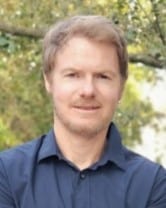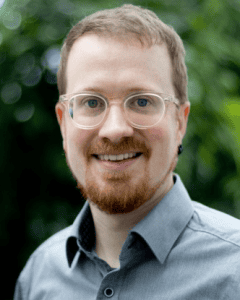Saturday, May 18, 2024, 12:45 – 2:15 pm EDT, Snowy Egret
Organizers: Akihito Maruya, State University of New York and Avi Aizenman, University of Giessen (VSS Student-Postdoc Advisory Committee); Shin’ya Nishida (VSS Board of Directors)
Moderator: Akihito Maruya, State University of New York
Speakers: Bei Xiao, American University; Miguel Eckstein, University of California, Santa Barbara; Thomas Wallis, TU Darmstadt
In recent years, AI has made significant strides, becoming accessible and implementable for many individuals without an extensive background in computer science. Can we harness AI’s capabilities to deepen our understanding of human vision while considering ethical implications? In this context, we introduce three pioneering speakers who currently leverage AI to enrich their comprehension of the visual system.
The first speaker conducts research on material perception through psychophysical experiments. She employs StyleGAN to systematically generate various material properties, delving into human material perception, and utilizes diverse large language models to establish connections between material perception and language. She will discuss the impact of AI on her research and understanding of vision, delve into technical details, and discuss the general issue about AI and Vision Science. A 20-minute presentation is followed by Q&A.
The second speaker utilizes AI to investigate covert attention, medical image search, and gaze perception. He will explore how AI influences his research and understanding of vision, providing technical insights and identifying potential AI-related challenges on Vision Science. Additionally, he will pose the broader question: Can deep neural networks perceive the world as humans do? By instructing neural networks based on human vision principles, can they demonstrate intelligent thinking and performance comparable to ours? A 20-minute presentation is followed by Q&A.
Finally, AI stands as a rapidly evolving technology with the potential to revolutionize research and innovation in unprecedented ways. However, this advancement comes with an equally significant responsibility: the ethical integration of AI into scientific workflows. The third speaker will delve into pressing ethical questions, guiding scientists on how to harness the power of AI while upholding ethical standards. Through a 20-minute presentation followed by a 10-minute Q&A session, he will offer insights into ethical AI integration, facilitating discussion on ethical practices in scientific endeavors.

Bei Xiao
American University
Bei Xiao is Provost Associate Professor of Computer Science at American University, where she leads the Computational Material Perception Laboratory. Her research focuses on how the human visual system estimate physical and functional properties of objects in our surroundings. Another focus of her research is to apply results from human perception and cognition to develop robust computer vision algorithms. Specifically, she studies perception and recognition of material properties, intuitive physics, estimation of 3D shape, perception of multi-sensory properties of objects in dynamic scenes. She uses a combination of human psychophysics, computer graphics, machine learning, image processing, and VR/AR techniques. Prior to joining AU, she was a postdoctoral associate in Brain and Cognitive Science at MIT. She also did a postdoctoral training at Smith Kettlewell Eye Research Institute. She received her PhD in Neuroscience from the University of Pennsylvania. Her research has been funded by NIH, NSF, and Google Research.

Miguel Eckstein
UC Santa Barbara
Miguel Eckstein earned a Bachelor Degree in Physics and Psychology at UC Berkeley and a Doctoral Degree in Cognitive Psychology at UCLA. He then worked at the Department of Medical Physics and Imaging, Cedars Sinai Medical Center and NASA Ames Research Center before moving to UC Santa Barbara. He is recipient of the Optical Society of America Young Investigator Award, the Society for Optical Engineering (SPIE) Image Perception Cum Laude Award, Cedars Sinai Young Investigator Award, the National Science Foundation CAREER Award, the National Academy of Sciences Troland Award, and a Guggenheim Fellowship. He has served as the chair of the Vision Technical Group of the Optical Society of America, chair of the Human Performance, Image Perception and Technology Assessment conference of the SPIE Medical Imaging Annual Meeting, Vision Editor of the Journal of the Optical Society of America A, the board of directors of the Vision Sciences Society, the board of editors of Journal of Vision, and as a member of National Institute of Health study section panels on Mechanisms of Sensory, Perceptual and Cognitive Processes and Biomedical Imaging Technology.
He has published over 200 articles relating to computational human vision, visual attention, search, perceptual learning, the perception of medical images. He has published in journals/conferences spanning a wide range of disciplines: Proceedings of the National Academy of Sciences, Nature Human Behavior, Current Biology, Journal of Neuroscience, Psychological Science, PLOS Computational Biology, Annual Reviews in Vision Science, Neural Information Processing Systems (NIPS), Computer Vision and Pattern Recognition (CVPR), IEEE Transactions in Medical Imaging, International Conference in Learning Representations (ICLR), Neuroimage, Academic Radiology, Journal of the Optical Society of America A, Medical Physics, Journal of Vision, Journal of Experimental Psychology Human Perception and Performance, Vision Research, and SPIE Medical Imaging.

Thomas S.A. Wallis
Technische Universität Darmstadt
Thomas S.A. Wallis is the Professor for Perception at the Institute of Psychology and Centre for Cognitive Science, TU Darmstadt. His interests mostly focus on visual perception in humans and machines, but also include machine learning and cognitive modelling and applications of visual perception research (image quality, driving).
Thomas finished his PhD in Psychology in 2010 in Derek Arnold’s lab at the University of Queensland, Australia, followed by a postdoctoral fellowship with Peter Bex in Boston, before moving to Germany in 2013 to work with Felix Wichmann and Matthias Bethge. He spent two years working as a scientist at Amazon research before joining the TU Darmstadt as a professor in 2021.
More information can be found on his CV and he can also be found on Google scholar, Orcid and Twitter. His pronouns are he/him (er/ihm).
